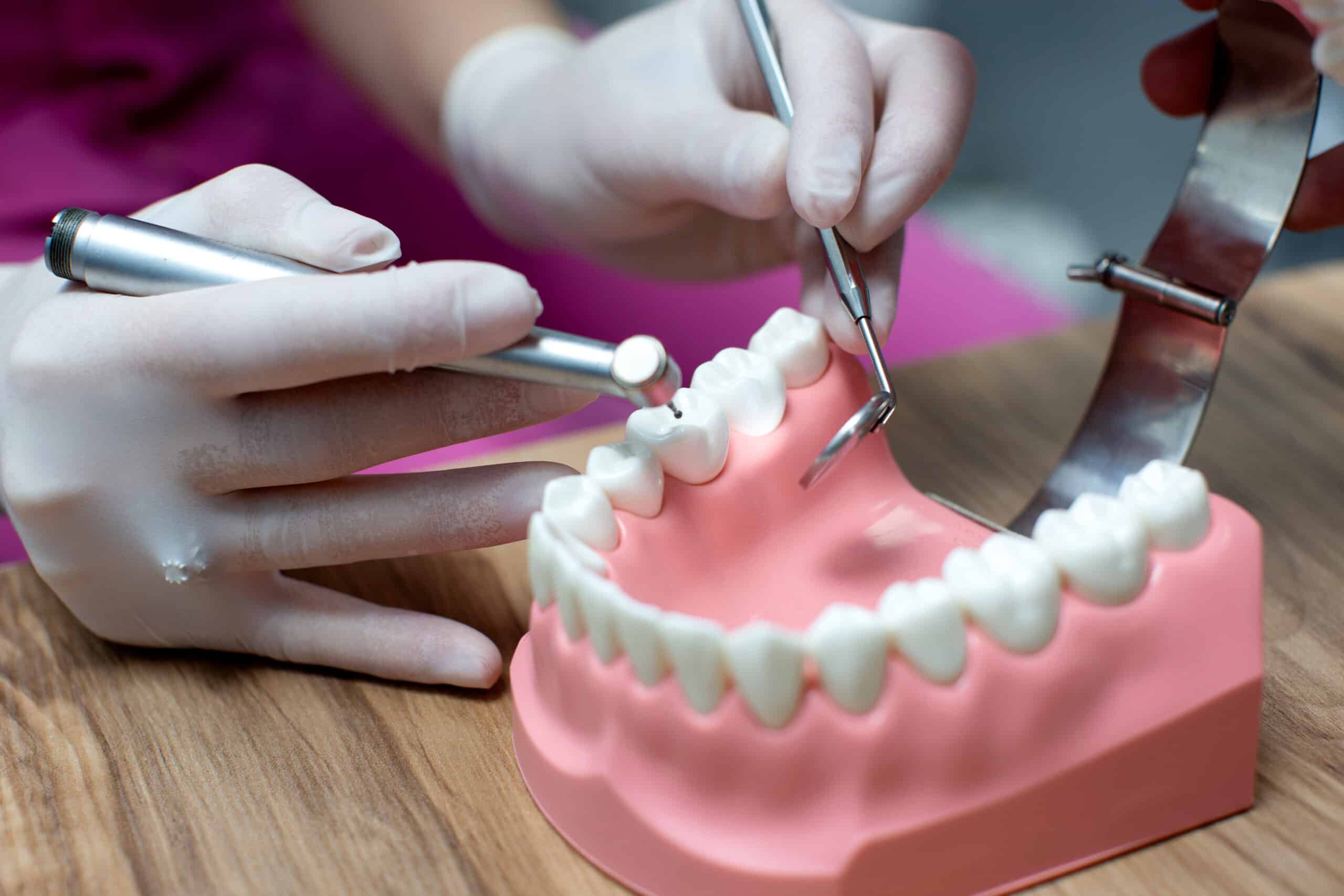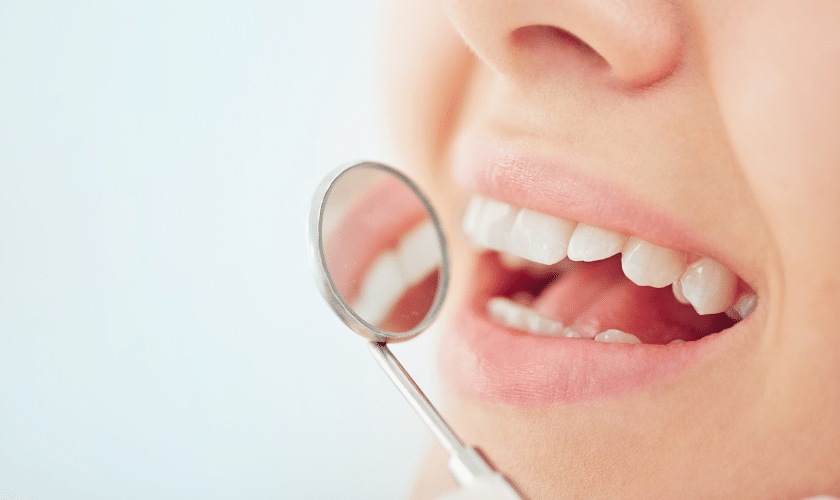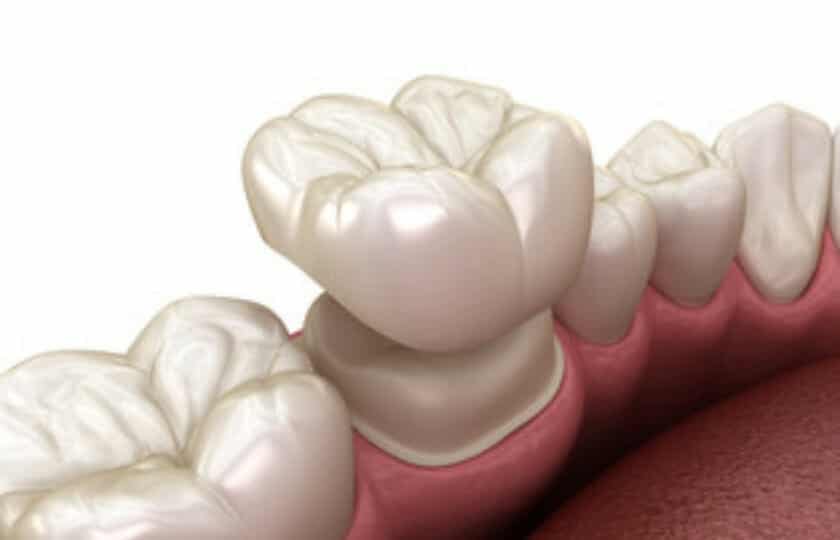We are not a registered Medicare/Medicaid Provider

A healthy smile is a reflection of a healthy lifestyle, and nothing beats the confidence that comes with it. However, dental problems such as cracked teeth or cavities can put your oral health at risk. That’s where dental crowns come in; these little wonders can protect your teeth from further damage while giving you a winning grin! In this article, we’ll explore what dental crowns are and why they’re essential for maintaining good oral health. Read on to discover their benefits and how you can keep them in tip-top shape for years to come.
What Are Dental Crowns?
Dental crowns are a common dental restoration used to improve the appearance and function of damaged or decayed teeth. They are essentially caps that are placed over existing teeth, covering them entirely up to the gum line.
Crowns can be made from various materials such as porcelain, ceramic, metal alloys, or resin-based composite material. The choice of material depends on the patient’s preference and other factors like cost and durability.
The process of getting a crown usually involves several steps. First, your dentist will remove any decay or damage from your tooth and shape it so that it can fit snugly under the crown. Next, they’ll take an impression of your prepared tooth which will be sent to a dental lab where your custom-made crown will be fabricated.
Once ready, you’ll go back to see your dentist who will place the new crown onto your tooth using dental cement. With proper care, a well-fitted crown can last for many years without needing replacement.
Dental crowns offer patients an effective way to restore their smile by improving both form and function while also protecting their natural teeth against further damage or decay.
The Benefits Of Dental Crowns
Dental crowns are an excellent solution for a variety of dental issues, from cracked or damaged teeth to cosmetic concerns. These custom-made caps fit over your existing tooth and can be made from a range of materials, including porcelain or ceramic.
One of the primary benefits of dental crowns is their durability. When properly cared for, they can last up to 15 years without needing to be replaced. They also protect against further damage or decay, making them an ideal choice for those who want to preserve their natural teeth as long as possible.
In addition to their functional benefits, dental crowns can also improve the appearance of your smile. Crowns can be color-matched to blend seamlessly with your natural teeth, giving you a more uniform and aesthetically pleasing look.
Another significant advantage of dental crowns is that they require minimal maintenance compared to other restorative options such as dentures or bridges. Regular brushing and flossing are typically all that’s needed to keep them clean and healthy.
Dental crowns offer numerous advantages for those looking to protect their teeth while also enhancing the beauty of their smile. With proper care and attention, these versatile restorations can help ensure optimal oral health for years to come.
How Long Do Dental Crowns Last?
Dental crowns are a popular solution for a variety of dental issues, from protecting damaged teeth to improving the appearance of discolored or misshapen teeth. But how long can you expect your dental crown to last?
The lifespan of a dental crown can vary depending on several factors, including the material used and how well it is cared for. Generally speaking, most dental crowns will last between 5-15 years with proper care.
Porcelain or ceramic crowns tend to be more fragile than metal or resin-based options and may require replacement sooner. Additionally, if you grind your teeth at night or engage in other habits that put extra pressure on your teeth, this can also shorten the lifespan of your crown.
Regular check-ups with your dentist are important for monitoring the condition of your crown and identifying any potential issues early on. Proper oral hygiene practices like brushing twice daily and flossing regularly can also help extend the life of your crown.
In some cases, a worn-out or damaged crown may need to be replaced before it causes further damage to surrounding teeth. Your dentist will work with you to determine when it’s time for a new crown based on factors like wear and tear or changes in tooth structure over time.
While there is no set expiration date for dental crowns, they typically provide reliable protection and aesthetic benefits for several years with proper care and maintenance.
How To Care For Your Dental Crowns
Once you have dental crowns, it’s important to take good care of them to ensure their longevity and effectiveness. Here are some tips on how to properly care for your dental crowns.
Firstly, maintain good oral hygiene practices such as brushing twice a day and flossing regularly. This helps prevent gum disease and tooth decay which could affect the crown’s stability.
Secondly, avoid chewing hard or sticky foods that may damage or dislodge the crown. If possible, try not to use your teeth as tools either as this can also cause damage.
Thirdly, consider wearing a mouthguard if you participate in contact sports or suffer from bruxism (night-time teeth grinding). Mouthguards provide an extra layer of protection against impact and pressure on your teeth including the crowns.
Fourthly, visit your dentist regularly for check-ups and cleanings. Your dentist will be able to monitor the condition of your crown(s) over time and identify any potential issues early on before they become major problems.
By following these simple steps, you can help keep your dental crowns functioning well for many years ahead.
Bottom Line
Dental crowns offer numerous benefits that can help protect your teeth for a lifetime. They are versatile and can be used to address various dental issues such as decayed, weakened, or damaged teeth. Crowns also improve the appearance of your smile by restoring the shape and size of discolored or misshapen teeth.
With proper care, dental crowns can last up to 15 years or more. It’s essential to maintain good oral hygiene practices such as brushing twice a day with fluoride toothpaste and flossing daily. Regular visits to your dentist will also ensure that any potential problems are detected early enough before they escalate into bigger issues.
If you’re considering getting dental crowns, consult with an experienced dentist who will advise on the best approach based on your specific needs. Don’t let fear prevent you from seeking treatment; instead, prioritize maintaining healthy teeth and gums through regular check-ups.
Investing in dental crowns is investing in your overall well-being since it helps improve both oral health and confidence levels when smiling. Protect your investment by taking care of them properly following all recommended guidelines provided by your dentist.
The process of getting a dental crown typically requires two appointments. The first appointment is for the preparation of the tooth, in which an impression will be taken and sent off to the lab to create your custom-made crown. During the second appointment, your dentist will attach and adjust the crown to ensure it fits properly and looks natural.
Getting a dental crown is an easy process and isn’t usually painful. There may be some tenderness afterward, but this should be minimal and will resolve quickly with over-the-counter pain relievers. Your dentist will provide you with detailed instructions for post-procedure care, as well as tips for avoiding pain and discomfort.



